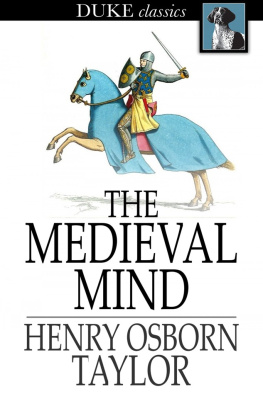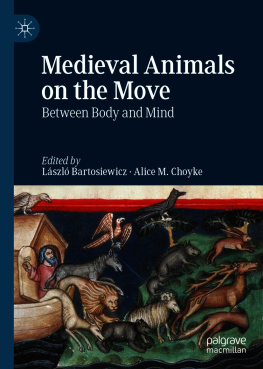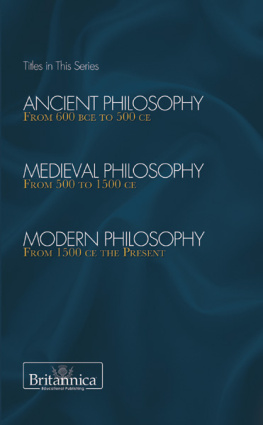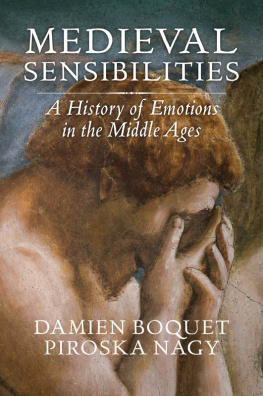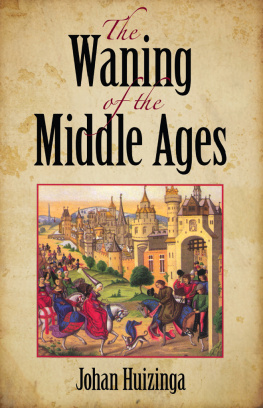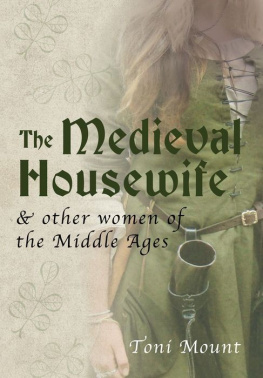THE MEDIEVAL MIND
A HISTORY OF THE DEVELOPMENT OF THOUGHT AND EMOTION IN THE MIDDLE AGES
* * *
HENRY OSBORN TAYLOR
*
The Medieval Mind
A History of the Development of Thought and Emotion in the Middle Ages
First published in 1911
ISBN 978-1-62013-816-8
Duke Classics
2014 Duke Classics and its licensors. All rights reserved.
While every effort has been used to ensure the accuracy and reliability of the information contained in this edition, Duke Classics does not assume liability or responsibility for any errors or omissions in this book. Duke Classics does not accept responsibility for loss suffered as a result of reliance upon the accuracy or currency of information contained in this book.
Contents
*
*
To
J. I. T.
Preface
*
The Middle Ages! They seem so far away; intellectually so preposterous,spiritually so strange. Bits of them may touch our sympathy, please ourtaste; their window-glass, their sculpture, certain of their stories,their romances,as if those straitened ages really were the time ofromance, which they were not, God knows, in the sense commonly taken. Yetperhaps they were such intellectually, or at least spiritually. Theirterranot for them incognita, though full of mystery and pall andvaguer glorywas not the earth. It was the land of metaphysicalconstruction and the land of spiritual passion. There lay their romance,thither pointed their veriest thinking, thither drew their utter yearning.
Is it possible that the Middle Ages should speak to us, as through acommon humanity? Their mask is by no means dumb: in full voice speaks thenoble beauty of Chartres Cathedral. Such mediaeval product, we hope, is ofthe universal human, and therefore of us as well as of the bygonecraftsmen. Why it moves us, we are not certain, being ignorant, perhaps,of the building's formative and earnestly intended meaning. Do we care toget at that? There is no way save by entering the mediaeval depths,penetrating to the rationale of the Middle Ages, learning thedoctrinale, or emotionale, of the modes in which they still presentthemselves so persuasively.
But if the pageant of those centuries charm our eyes with forms that seemso full of meaning, why should we stand indifferent to the harnessedprocesses of mediaeval thinking and the passion surging through thethought? Thought marshalled the great mediaeval procession, which moved tomeasures of pulsating and glorifying emotion. Shall we not press on,through knowledge, and search out its efficient causes, so that we too mayfeel the reality of the mediaeval argumentation, with the possiblevalidity of mediaeval conclusions, and tread those channels of mediaevalpassion which were cleared and deepened by the thought? This would be toreach human comradeship with mediaeval motives, no longer found too remotefor our sympathy, or too fantastic or shallow for our understanding.
But where is the path through these footless mazes? Obviously, if we wouldattain, perhaps, no unified, but at least an orderly presentation ofmediaeval intellectual and emotional development, we must avoidentanglements with manifold and not always relevant detail. We must notdrift too far with studies of daily life, habits and dress, wars andraiding, crimes and brutalities, or trade and craft and agriculture. Norwill it be wise to keep too close to theology or within the lines ofgrowth of secular and ecclesiastical institutions. Let the student bemindful of his purpose (which is my purpose in this book) to followthrough the Middle Ages the development of intellectual energy and thegrowth of emotion. Holding this end in view, we, students all, shall notstray from our quest after those human qualities which impelled thestrivings of mediaeval men and women, informed their imaginations, andmoved them to love and tears and pity.
The plan and method by which I have endeavoured to realize this purpose inmy book may be gathered from the Table of Contents and the First Chapter,which is introductory. These will obviate the need of sketching here theorder of presentation of the successive or co-ordinated topics forming thesubject-matter.
Yet one word as to the standpoint from which the book is written. Anhistorian explains by the standards and limitations of the times to whichhis people belong. He judgesfor he must also judgeby his own bestwisdom. His sympathy cannot but reach out to those who lived up to theirbest understanding of life; for who can do more? Yet woe unto that manwhose mind is closed, whose standards are material and base.
Not only shalt thou do what seems well to thee; but thou shalt do right,with wisdom. History has laid some thousands of years of emphasis on this.Thou shalt not only be sincere, but thou shalt be righteous, and notiniquitous; beneficent, and not malignant; loving and lovable, and nothating and hateful. Thou shalt be a promoter of light, and not ofdarkness; an illuminator, and not an obscurer. Not only shalt thou seek tochoose aright, but at thy peril thou shalt so choose. "Unto him that hathshall be given"nothing is said about sincerity. The fool, the maniac, issincere; the mainsprings of the good which we may commend lie deeper.
So, and at his peril likewise, must the historian judge. He cannot statethe facts and sit aloof, impartial between good and ill, between successand failure, progress and retrogression, the soul's health and loveliness,and spiritual foulness and disease. He must love and hate, and at hisperil love aright and hate what is truly hateful. And although hissympathies quiver to understand and feel as the man and woman before him,his sympathies must be controlled by wisdom.
Whatever may be one's beliefs, a realization of the power and import ofthe Christian Faith is needed for an understanding of the thoughts andfeelings moving the men and women of the Middle Ages, and for a justappreciation of their aspirations and ideals. Perhaps the fittest standardto apply to them is one's own broadest conception of the Christian scheme,the Christian scheme whole and entire with the full life of Christ'sGospel. Every age has offered an interpretation of that Gospel and anattempt at fulfilment. Neither the interpretation of the Church Fathers,nor that of the Middle Ages satisfies us now. And by our furtherunderstanding of life and the Gospel of life, we criticize the judgment ofmediaeval men. We have to sympathize with their best, and understand theirlives out of their lives and the conditions in which they were passed. Butwe must judge according to our own best wisdom, and out of ourselves offerour comment and contribution.
HENRY OSBORN TAYLOR.
Many translations from mediaeval (chiefly Latin) writings will be found inthis work, which seeks to make the Middle Ages speak for themselves. Witha very few exceptions, mentioned in the foot-notes, these translations aremy own. I have tried to keep them literal, and at all events free from theintrusion of thoughts and suggestions not in the originals.
BOOK I - THE GROUNDWORK
*
Chapter I - Genesis of the Mediaeval Genius
*
The antique civilization of the Roman Empire was followed by thatdepression of decadence and barbarization which separates antiquity fromthe Middle Ages. Out of the confusion of this intervening period emergedthe mediaeval peoples of western Europe. These, as knowledge increasedwith them, began to manifest spiritual traits having no clear counterpartin the ancient sources from which they drew the matter of their thoughtand contemplation.

